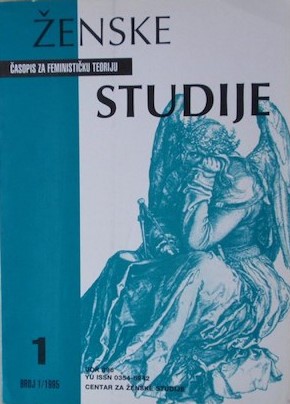U senci Saturna
IN THE SHADOW OF THE SATURN
Author(s): Branka ArsićSubject(s): Ethics / Practical Philosophy, Social Philosophy, Rhetoric
Published by: Centar za ženske studije & Centar za studije roda i politike, Fakultet političkih nauka, Beograd
Keywords: melancholy; subject; modernity
Summary/Abstract: In this article the author deals with the status of madness in meditating. More precisely she tries to give an answer lo the question whether the madness is excluded from meditating. However, one can not speak principally of the status of madness in meditating. For, the 17th century already differentiates forms of madness, such as mania, melancholy, hypochondria, delirious disintegration of mind, etc. The analysis of the First Meditation can show that Descartes did not have in mind madness as madness, when he introduced “the example from madness", but that he, above all, had in mind melancholy. Descartes excluded melancholics from his metaphysical Meditations, because they are deprived of the possibility of self-production, because they are motionless, “out" of time, always already produced. Melancholics, therefore, can not meditate, they can not be and, as a matter of fact, are not meditative subjects. But the fact that melancholy is excluded from Cartesian meditation, docs not mean at all that it is not involved here again. For, by “excluding" cogito and by replacing it with res cogitans. Descartes had excluded from Meditations everything that melancholy is not and introduced everything that it is. In other words, with res cogitans Descartes had really introduced melancholy. For, like melancholics, it is also in self-identity, it is also motionless, it is deprived of sensousness, bod inces, and extraneousness, it is “withdrawn from the world" and immobilized in “the moment that does not pass". It is also not, in accordance with melancholic, an effect of owns work, it is not its deed, but is stated by the gesture of “allegorian", by the gesture that puts it in self-identity. Analysis made in this article shows that with res cogitans the Modernity introduced that melancholic subject. Res cogitans is the “sad” destiny of modern subject, which is possible “only as its own eternally living death, as the loss of itself, as unsignified, as nothing”.
Journal: Ženske studije : časopis za feminističku teoriju
- Issue Year: 1995
- Issue No: 1
- Page Range: 7-46
- Page Count: 40
- Language: Serbian

